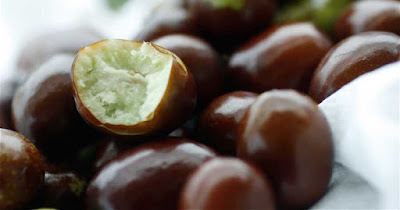BENEFITS OF RED DATES, HOW TO USE IT TO REMEDY ANEMIA AND STRENGTHEN IMMUNE SYSTEM
WHAT ARE RED DATES?
Red dates, also called jujube, are brown-red stone oval fruits with thin shiny skin. They vary in sizes between 2.5 and 6 centimeters, and grow on trees. The red date tree, Ziziphus zizyphus, is also called jujube tree or Ziziphus jujube.
The tree is mainly found in Asian countries, but also in Arab countries and for several hundred years in southern European countries. Jujube trees are now also growing in the USA, where production of red dates has increased dramatically.
The history of the red dates began in the new Stone Age (Neolithic), about 8000 years ago. The people of the ancient Zhou Dynasty (circa 1046-256 BC) used the red dates to brew wine. Since that time the red dates were often mentioned in the Traditional Chinese Medicine (TCM), where the ideal meal consists of a combination of flavor, nutrients and medicinal effects.
Even in the modern world, the red date is very popular and is recommended as “natural vitamin supplement” because of the health benefits.
NUTRITIONAL FACTS OF RED DATES
If you eat 100 grams of dates, you get nearly 20% of the Recommended Daily Intake (RDI) of Vitamin B6; and 16% of the vitamin B5 RDI. Other vitamins in dates are the Vitamin A, Vitamin B2, B3, and B11.
Dates also contain several important minerals. If you eat 100 grams of dates, you get 40% of the RDI of copper; and 16% of the RDI of potassium. Other minerals found in dates are the manganese, magnesium, iron, phosphorus, calcium, and zinc.
HEALTH BENEFITS OF RED DATES
In addition to vitamins and minerals, there are other healthy substances in dates.
Anti-cancer: The high lutein content in dates helps prevent cancer by eliminating free radicals in the body. Free radicals not only cause cell damage but also damage the DNA and can be very dangerous.
Anti-depressant, natural: Eating red dates can help to reduce stress and fear, and also seems to support mental agility. Researchers found that date extracts had the highest biologic effect in the activation of an important enzyme in the synthesis of our acetylcholine memory molecule, the so-called choline acetyltransferase.
Anti-inflammatory: Also disclosed are anti-inflammatory properties that may be related to the presence of oleamide among others. Oleamide is a very interesting substance that produces ourselves in our brains when we are at rest. It’s our built-in brake not to go on endlessly.
Blood-building: Red dates are an excellent source of iron, and a powerful natural remedy against anemia and replenishing red blood cells.
Blood Pressure: Eating fresh jujubes or drinking red dates tea regularly will help to regulate your blood pressure. Red dates in its dried form contain even higher levels of potassium that is helpful for keeping the blood vessels relaxed to improve blood pressure.
Cataract: Zeaxanthine, a phytonutrient that is high in dates, is beneficial for your eyes and prevents you from developing cataract.
Heart health: Red dates also contain polyphenols that appear to have clear efficacy in the prevention of cardiac damage after a heart attack. It is, therefore, a myoprotective agent.
Immune system: Extracts of the fruit also appear to enhance the immune system. In a clinical study, the fruit appeared to have clear therapeutic effects on constipation, something we especially know about dried plums.
Sleep better: Jujube contains compounds known as flavonoids, saponins and polysaccharides that have a soothing effect on the nervous system. This gives it the ability to induce sleep and help insomniacs to get a restful night without drugs.




